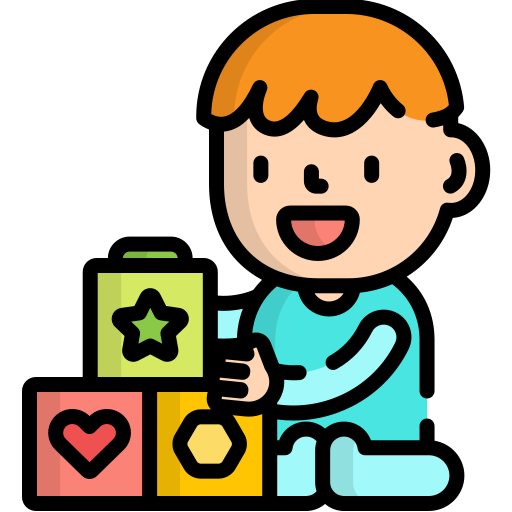
When it comes to the health and development of your child’s vision, it’s important to be proactive and take the necessary steps to ensure their eyes are in good shape. One way to manage any potential concerns is through the use of eye glasses specifically designed for babies and toddlers. These spectacles are designed to help children with visual issues, whether it’s nearsightedness or farsightedness, and offer a clear solution for worried parents.
In general, babies and toddlers between the ages of 2-4 might develop certain eye problems. While it’s not always easy to tell if your child has an issue, there are some symptoms you can look out for. For example, if your child often squints or complains of headaches, it might be wise to have their vision checked. Additionally, if they struggle to see objects up close or have a hard time focusing on a TV screen, it’s important to address these concerns early on.
Dr. Chelsea Gerlitz, a renowned expert in pediatric eye care, explains that wearing glasses at a young age can help slow down the progression of certain eye conditions. She emphasizes that it’s crucial to trust your instincts as a parent and seek professional help if you feel there might be an issue. The earlier any potential problems are detected, the better chance your child has at developing healthy eyes and clear vision.
One commonly known eye condition among babies and toddlers is hyperopia, or farsightedness. This means that they have difficulty seeing objects up close, but can usually see things clearly in the distance. On the other hand, myopia, or nearsightedness, is less common in young children, but can develop as they get older. This condition causes distant objects to appear blurry, while close-up objects remain clear.
If you’re concerned about your child’s eyes, the first step is to schedule an appointment with an eye care professional. They will be able to assess your child’s vision and offer guidance on the best course of action. In some cases, glasses may be necessary, while others might require a different form of treatment or monitoring. Either way, it’s important to trust the advice of a professional who specializes in children’s eye health.
When it comes time to choose frames for your child’s glasses, there are a few factors to consider. Young children are often active and curious, so it’s important to pick frames that are durable and comfortable. Look for frames made of flexible materials that can withstand the pressures of daily life. Additionally, think about the style and design of the frames, as your child will be more likely to wear glasses they feel confident and happy in.
In conclusion, if you notice any potential signs or symptoms related to your child’s eyes, don’t hesitate to have them checked by a professional. Early intervention and treatment can make a significant difference in your child’s eye health and overall well-being. Remember, it’s never too early to be proactive about your child’s vision!
Contents
- 1 Best Eye Glasses for Babies and Toddlers
- 2 Discover the Perfect Fit for Your Little One
- 3 Progressive myopia in babies and toddlers and how to manage it
- 4 Understanding the Risk Factors
- 5 Early Detection and Diagnosis
- 6 Lifestyle Changes to Slow Down Progression
- 7 The Role of Eye Glasses in Managing Progressive Myopia
Best Eye Glasses for Babies and Toddlers
When it comes to the eye health of your little ones, it’s important to be proactive and provide them with the best care possible. One way to do this is by ensuring they have the right eyeglasses that can aid their vision development. Babies and toddlers may face various eye problems, from hyperopia to myopia, that need to be addressed early on.
Infant eyes are still in the developmental stage, and any problem they encounter at this point can translate to more significant issues in the future. Therefore, it’s crucial to recognize and address any concerns about your child’s eye health as early as possible. Regular ocular exams and screenings can help detect and identify potential risks, ensuring that appropriate steps are taken to manage them.
When to Get Your Baby’s Eyes Tested
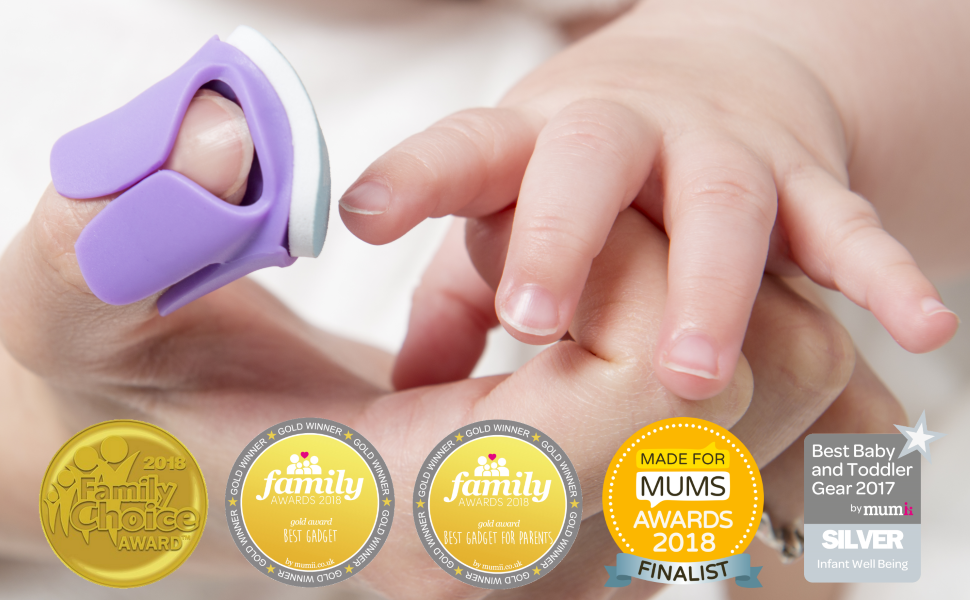
As a parent, you might wonder when is the best time to have your baby’s eyes tested. According to Dr. Albert of Alberta Eye Care, it’s recommended to have your child’s eyes tested by an optometrist or ophthalmologist during the newborn examination. This provides a baseline for future eye health assessments and allows the doctor to identify any immediate concerns.
Additionally, if you notice any changes or abnormalities in your baby’s eyes – such as crossed eyes, excessive tearing, or sensitivity to light – it’s important to consult with an eye care professional. They can determine if further tests or treatment is needed.
The Benefits of Baby and Toddler Glasses
Glasses for babies and toddlers offer several benefits. Firstly, they help correct any refractive errors, such as hyperopia or myopia, which can affect their vision. By providing the appropriate prescription, glasses allow for better visual experiences and can help slow down the progression of these conditions.
Furthermore, eyeglasses can aid in the proper development of your child’s visual system. They provide clear and focused images, helping the eyes and brain work together more efficiently. This is particularly crucial during the formative years, as it sets the foundation for healthy eyes and vision throughout their life.
In addition to providing clear vision, glasses can also protect your baby’s eyes. They act as a barrier against harmful elements, such as dirt or debris, that may accidentally come in contact with their eyes.
Choosing the Right Glasses
When it comes to selecting the best eyeglasses for your baby or toddler, there are a few key considerations. Firstly, the frames should be comfortable and secure, ensuring that they stay in place while your child plays and moves around. It’s also essential to choose frames that are safe and made from durable materials.
The type of lenses used is another important factor. Polycarbonate lenses are recommended for children, as they are impact-resistant and provide protection against accidents and injuries. This helps ensure the safety of your child’s eyes while they explore and interact with their environment.
It’s also important to consider the size and fit of the glasses. Frames that are too large or small can cause discomfort and hinder vision. It’s best to consult with an optician who can guide you in finding the right balance between style, comfort, and functionality.
In conclusion, providing the best eye care for your baby or toddler includes ensuring they have the right glasses that support their vision development. By being proactive and addressing any eye concerns early on, you can help set a solid foundation for their visual health and well-being.
Discover the Perfect Fit for Your Little One
When it comes to eyeglasses for babies and toddlers, finding the perfect fit is essential. Little ones can have unique needs when it comes to vision correction, so it’s important to understand what to look for when choosing glasses for your child.
Something to Consider: Nearfarsightedness
One common vision issue for babies is being near or farsighted. This means they may have difficulty seeing objects up close or at a distance. If you notice your child squinting or struggling to see things clearly, it’s worth scheduling an eye exam to determine if glasses may be necessary.
What to Expect During the Exam
During the eye exam, the optometrist will check for any vision problems and also assess your child’s eye health. They will most likely use special instruments to measure the curvature of your child’s eyes and determine the correct prescription if needed. The exam is generally quick and painless, and your child’s cooperation is crucial.
As babies’ natural development progresses, they may require a different prescription as they grow. It’s important to keep track of your child’s vision and schedule regular eye exams to ensure their glasses are up to date.
The Best Age to Start Wearing Glasses
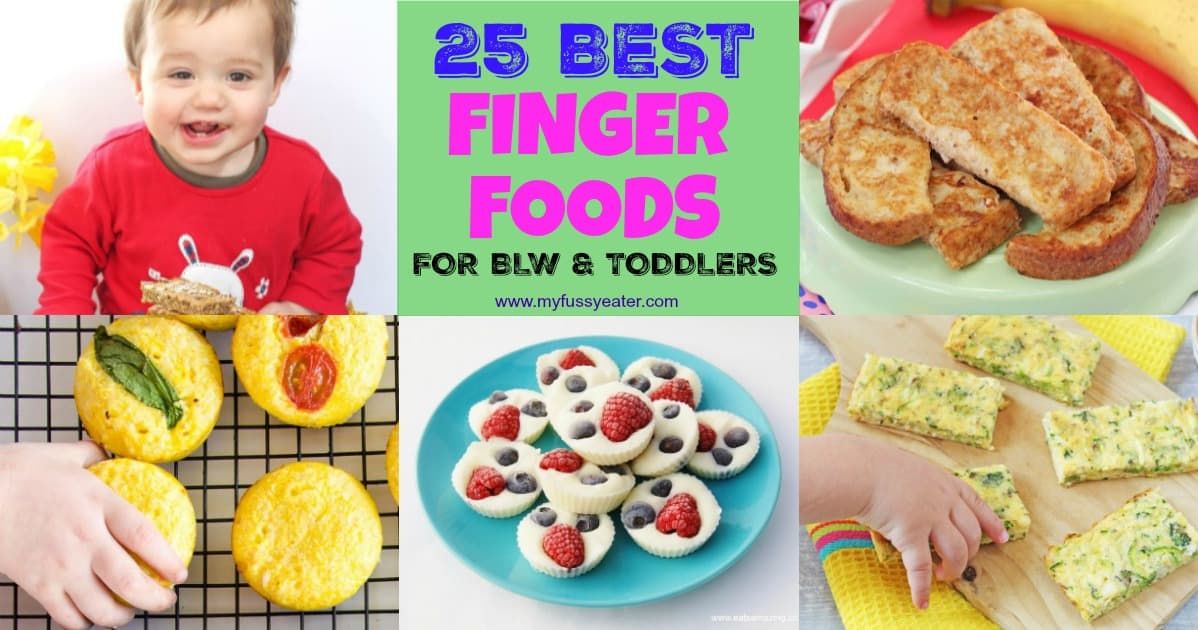
The age at which a child should start wearing glasses can vary. Some babies may need glasses as early as six months old, while others may not require them until they are a few years old. It all depends on their individual vision needs.
If you’re pregnant and worried about your baby’s vision, rest assured that babies’ eyes typically develop fully by the time they are born. However, it’s wise to consult your healthcare provider for more information and references about baby’s visual development.
Choosing the Right Frame
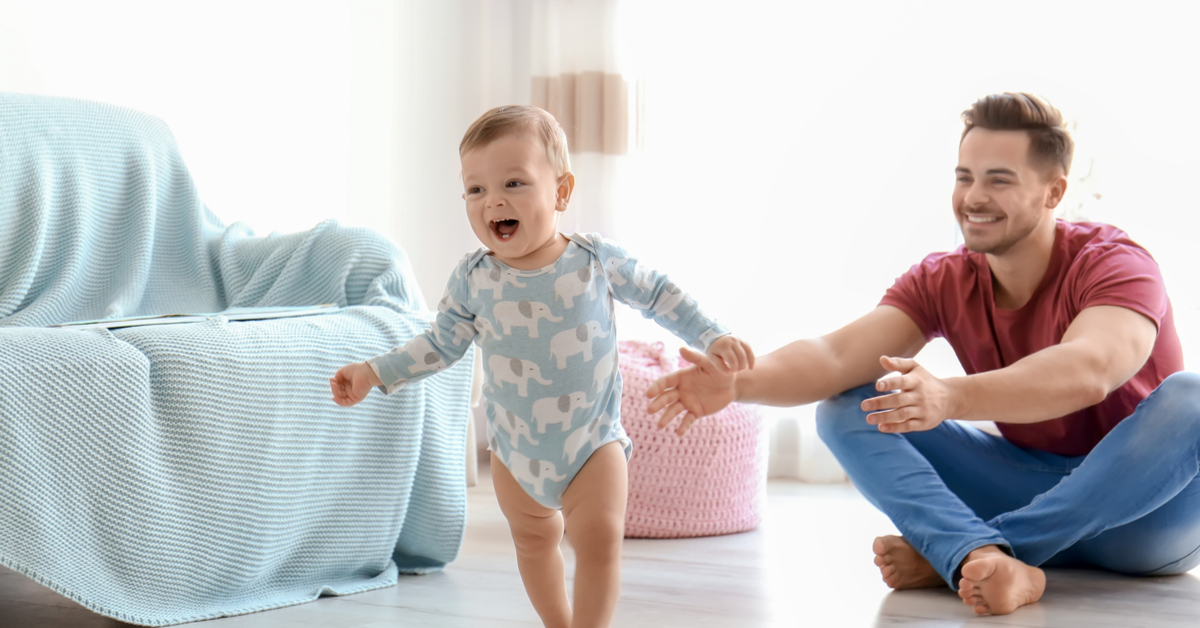
When selecting eyeglasses for your little one, there are a few factors to consider. Firstly, the frame should be comfortable and secure on their face. It should not be too tight or loose, and the material should be safe and durable. Look for frames specifically designed for babies and toddlers, as these are typically more suitable for their smaller faces.
Next, consider the type of lenses you want for your child. Clear lenses are common, but depending on their vision needs, your optometrist may recommend corrective lenses, such as lenses for near or farsightedness.
Lastly, it’s important to take into account your child’s personal preferences and style. Letting your little one be part of the process and choose a frame color or design they like can make wearing glasses a more enjoyable experience for them.
Remember, it’s crucial to take care of your child’s glasses, including regular cleaning and maintenance. Also, babies and toddlers may need some time to adjust to wearing glasses full-time, so be patient and offer gentle encouragement along the way.
In conclusion, if you suspect that your baby or toddler may have vision issues, don’t hesitate to schedule an eye exam. Catching any potential problems early on and providing the necessary vision correction can greatly benefit their overall development and quality of life.
Progressive myopia in babies and toddlers and how to manage it
Babies and toddlers are not immune to vision problems, and one issue that can arise at a young age is progressive myopia. Myopia, also known as nearsightedness, is a common eye condition where objects in the distance appear blurry, while objects up close are clear. However, progressive myopia is a more severe form where the condition worsens over time.
So, how do you know if your baby or toddler has progressive myopia? One telltale sign is if they frequently squint or hold objects very close to their face. Another flag can be if they frequently rub their eyes or complain of headaches. If you notice any of these symptoms, it is essential to schedule a visit with an eye doctor or ophthalmologist.
During the visit, the eye doctor will conduct a comprehensive eye exam to test your child’s vision and assess the progression of the myopia. They may use a dilated eye exam or recommend other specialized tests to gather more information. Based on the results, the ophthalmologist will provide recommendations for managing and controlling the myopia.
One common management strategy is the use of eyeglasses specifically designed for children with progressive myopia. These glasses are usually made of impact-resistant materials and have a frame that fits comfortably on the child’s face. The lenses are made to correct the child’s vision and help slow down the progression of myopia.
Another option is the use of contact lenses, but this choice requires careful consideration as contact lens use in babies and toddlers is not as common. Your eye doctor will be able to provide guidance and determine if contact lenses are a suitable option for your child.
In addition to eyeglasses or contact lenses, there are also other steps you can take to manage your child’s myopia progression. Limiting screen time, especially from digital devices like tablets and smartphones, is important as excessive screen time has been linked to faster myopia progression in children. Encourage outdoor playtime, as studies have shown that spending time outdoors can help slow down myopia progression. Regular eye check-ups with eye doctors are also necessary to keep track of your child’s vision and make any necessary adjustments.
While progressive myopia in babies and toddlers can be a concerning issue for parents, it is essential to remember that there are strategies available to manage it. By staying proactive and seeking professional advice, you can help control your child’s myopia progression and ensure their eye health in the long run.
Understanding the Risk Factors
When it comes to eye care for babies and toddlers, it’s important to understand the risk factors that may affect their vision. While some children develop normal vision without any issues, others may face challenges that require extra care and attention.
There are several risk factors that can influence a child’s visual health. Here are some of the key factors to consider:
- Genetics: A baby’s visual health can be influenced by their parents’ genetics. If there is a family history of eye conditions such as nearsightedness or farsightedness, there may be an increased chance that the child will develop similar issues.
- Developmental milestones: Babies and toddlers go through various developmental milestones, such as learning to crawl, walk, and talk. These milestones are related to their overall growth and development, including their visual skills.
- Age: The age of a child can also play a role in their visual health. Babies’ vision continues to develop during their first year, and it is important to manage any potential issues during this period.
- Health conditions: Certain health conditions, such as prematurity or Down syndrome, may be associated with an increased risk of eye problems in children.
- Exposure to screen time: In today’s digital age, babies and toddlers have more exposure to screens, such as smartphones and tablets. Excessive screen time can potentially impact their vision and eye health.
- Proper eyewear: If your baby or toddler has been prescribed glasses, it is important to ensure they wear them as directed by their eye care professional. Properly fitting frames and lenses can help manage vision issues and promote proper visual development.
- Eye exams: Regular eye exams are essential for young children. These exams can help detect any potential issues early on and ensure that appropriate care is provided.
It’s important to note that every child is different, and what works for one may not work for another. If you notice any concerns or have questions about your child’s visual health, it is best to consult with an eye care professional. They can provide guidance based on your child’s individual needs and offer the best options for managing their vision and eye health.
In summary, understanding the risk factors related to a baby’s visual health is crucial. By paying attention to these factors and taking appropriate measures, parents can help ensure that their child’s eyes are in good health and functioning well.
Early Detection and Diagnosis
When it comes to the development of your baby’s eyes, early detection and diagnosis of any potential problems are crucial. Babies’ eyes undergo significant changes during their first year of life, and it is important to monitor their progress to ensure optimal eye health and vision.
One of the primary reasons for early detection is to identify and address any refractive errors in your baby’s eyes. Refractive errors, such as nearsightedness or farsightedness, can affect your baby’s visual acuity and may require the use of glasses to correct their vision.
During the early stages of development, your baby’s eyes may not yet be fully able to control their focus, which can lead to issues with nearsightedness or farsightedness. If you notice any signs such as your baby squinting or having difficulty focusing on objects, it may be wise to consult an eye care professional for a comprehensive eye exam.
An eye exam can help diagnose any potential issues and determine if glasses are needed. It is important to note that not all babies will need glasses, but an eye exam can provide valuable insight into their eye health and development. If glasses are prescribed, your baby’s eye care professional will recommend a suitable frame and lenses to ensure the best fit and vision correction.
Some parents may be hesitant to have their babies or toddlers wear glasses, but it is important to trust the advice of eye care professionals. Wearing glasses at a young age can help correct vision problems and support the normal progression of eye development. In some cases, delaying or ignoring the need for glasses can lead to further vision problems down the line.
Additionally, monitoring your baby’s screen time is crucial in today’s digital age. Excessive exposure to screens, such as TVs, computers, and smartphones, can strain your baby’s eyes and potentially contribute to vision problems. It is important to limit screen time and ensure that your baby is positioned at an appropriate distance from the screen.
In terms of milestones, your baby’s eyes should be able to focus on objects and track movement by the age of 6-12 weeks. By the time they reach 6 months of age, their eyes should be able to work together and follow objects with ease. If you notice any significant delays in these milestones, it is advisable to consult an eye care professional for further evaluation.
In conclusion, early detection and diagnosis of potential eye problems in babies and toddlers are essential for ensuring optimal eye health and vision. Regular eye exams, monitoring screen time, and addressing any signs of refractive errors can help support your baby’s visual development and overall well-being.
Lifestyle Changes to Slow Down Progression
When it comes to managing your child’s eye health, there are several lifestyle changes you can make to slow down the progression of any potential vision problems. Here are some key factors to consider:
Regular Eye Exams
Leading experts recommend scheduling regular eye exams for your baby or toddler to monitor their eye development and catch any potential issues early on. These visits will help you stay informed about their eye health and provide valuable information on how to best care for their needs.
Limit Screen Time
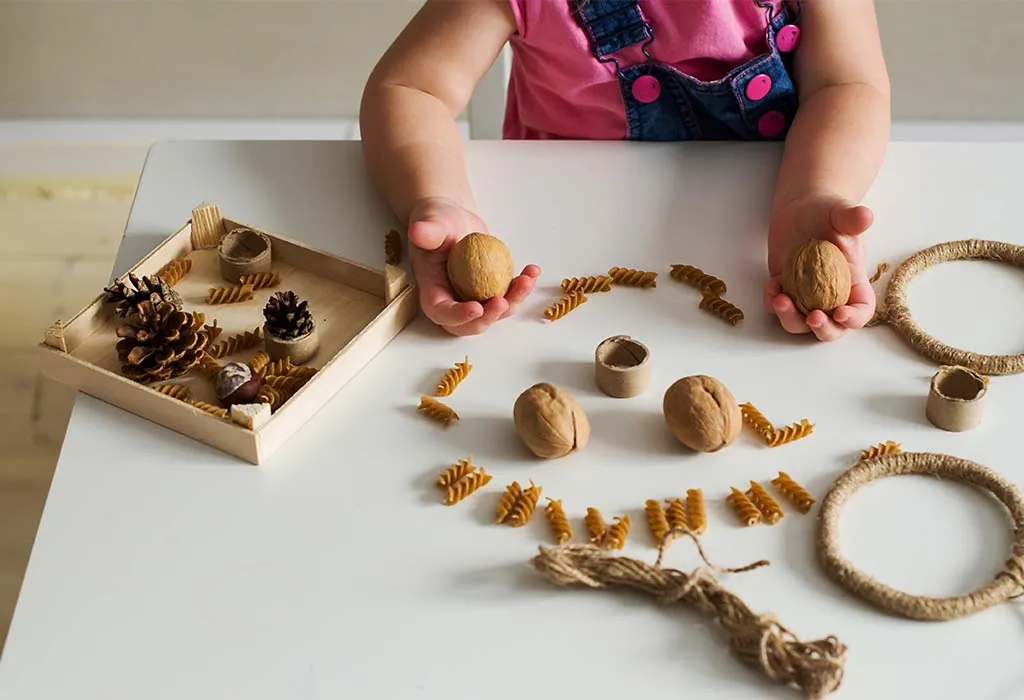
Excessive screen time can have a negative impact on your child’s eyesight, especially as they grow older. Encourage healthy habits by limiting the amount of time your child spends in front of screens, whether it’s watching TV or using electronic devices.
Early Intervention
If you notice any symptoms or concerns about your child’s vision, don’t wait to seek professional help. It’s always best to address any eye-related problems early on, as this can lead to better outcomes in terms of managing and treating the issue.
Encourage Outdoor Activities
Spending time outdoors not only promotes physical health but can also help prevent myopia or nearsightedness in children. Studies have shown that spending at least 2-4 hours per day outside can significantly reduce the risk of developing myopia.
Proper Nutrition
A well-balanced diet is essential for your child’s overall health, including their eye health. Make sure they eat a variety of foods rich in nutrients like vitamin C, vitamin E, zinc, and omega-3 fatty acids to support optimal eye development.
Letting Their Eyes Rest
Excessive strain on the eyes can lead to vision problems and eye fatigue. Encourage your child to take breaks from near work, such as reading or using electronic devices, and let their eyes rest periodically.
Protective Eyewear
Depending on your child’s needs, they may benefit from wearing protective eyewear, such as sunglasses or blue light glasses. These can help reduce eye strain and protect their eyes from potential damage caused by UV rays or excessive screen time.
By implementing these lifestyle changes and taking proactive steps, you can ensure your child’s eye health is well taken care of. Remember to schedule regular eye exams and consult with a healthcare professional if you have any concerns about their vision.
The Role of Eye Glasses in Managing Progressive Myopia
When it comes to the vision health of our children, it’s crucial to stay informed and take action when necessary. One common vision issue that parents are often concerned about is progressive myopia, also known as nearsightedness. But what role do eye glasses play in managing this condition?
Let’s start by understanding what progressive myopia is. It refers to a condition in which a child’s vision gradually becomes more nearsighted over time. This means that they have difficulty seeing objects clearly at a distance but can see them clearly up close.
In Alberta, Canada, it is recommended that children have their eyes examined before starting elementary school. These exams can help detect any vision problems early on and determine if glasses are needed. Early detection is key because if left untreated, progressive myopia can lead to more serious eye problems later in life such as retinal detachment.
So why are parents concerned about their babies’ and toddlers’ vision? It’s important to note that infants have clearer vision at close distances than at a distance, so it’s normal for them to have a slightly blurry distance vision. However, if you notice your child squinting or having trouble recognizing faces or objects from afar, it might be a good idea to have their eyes tested.
Now, let’s address the myth that wearing glasses at a young age can make the child become dependent on them. This is not true. Wearing glasses does not make a child’s eyes weaker or more reliant on them. Instead, it helps correct their vision and allows their eyes to develop normally.
When it comes to choosing the best eye glasses for babies and toddlers, trust is an essential element. Pick glasses that are comfortable and fit well for your child’s age. Additionally, consider frames that have a strap or band to prevent the glasses from slipping off.
As for the color of the lenses, there is no specific evidence to support the claim that certain colors such as blue or red are better for infants or young children. It’s more important to make sure the glasses are providing the correct prescription and protecting their eyes from harmful UV rays.
In conclusion, it’s important for parents to be proactive about their child’s eye health, especially when it comes to managing progressive myopia. Regular eye exams, early detection, and appropriate glasses can help ensure their vision stays clear and healthy throughout their lives.
| Keywords: | progressive myopia, eye glasses, vision, children, babies, toddlers, concern, eyes examined, blurry vision, trust, frames, lenses, prescription, UV rays, eye health |
